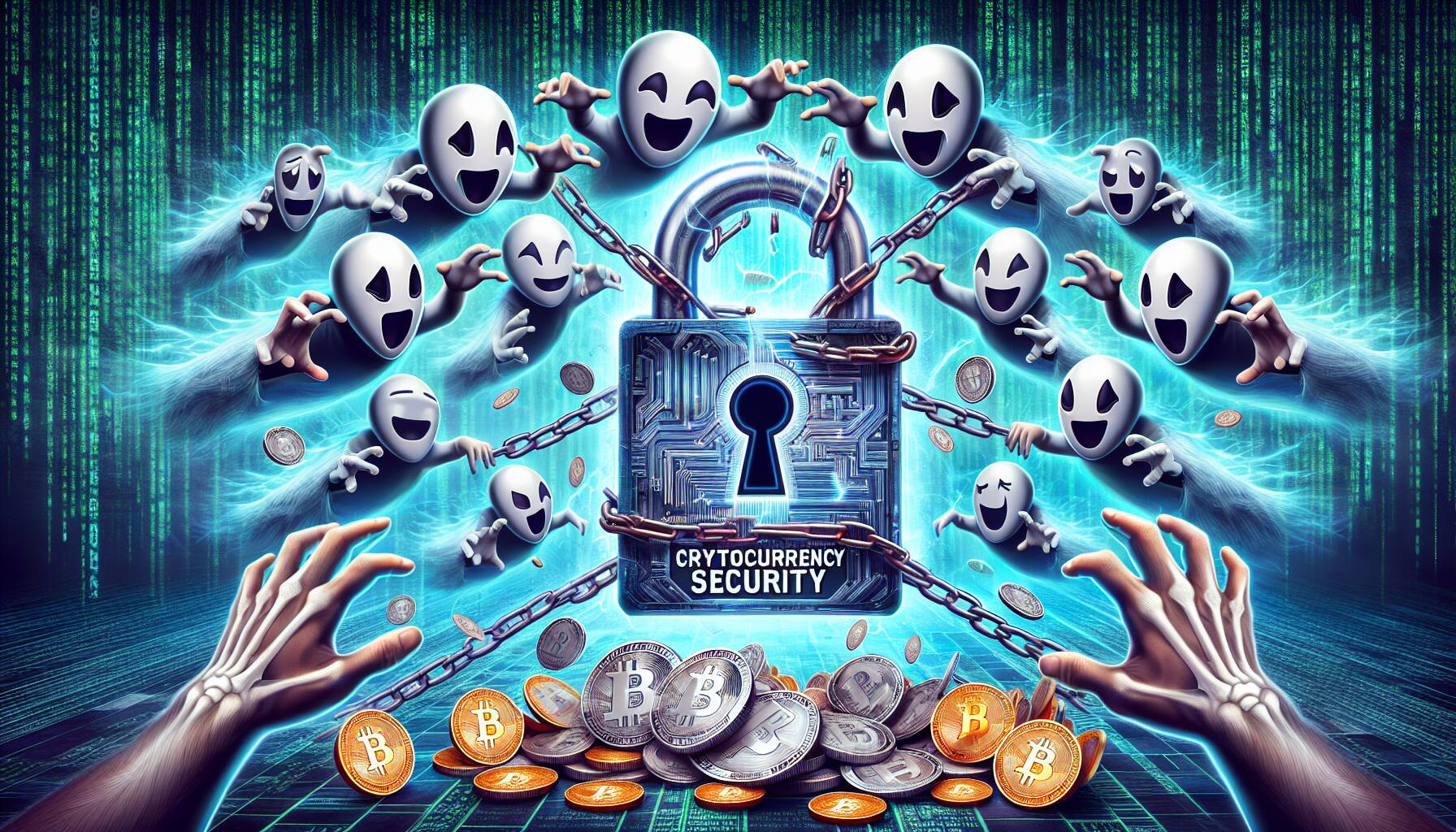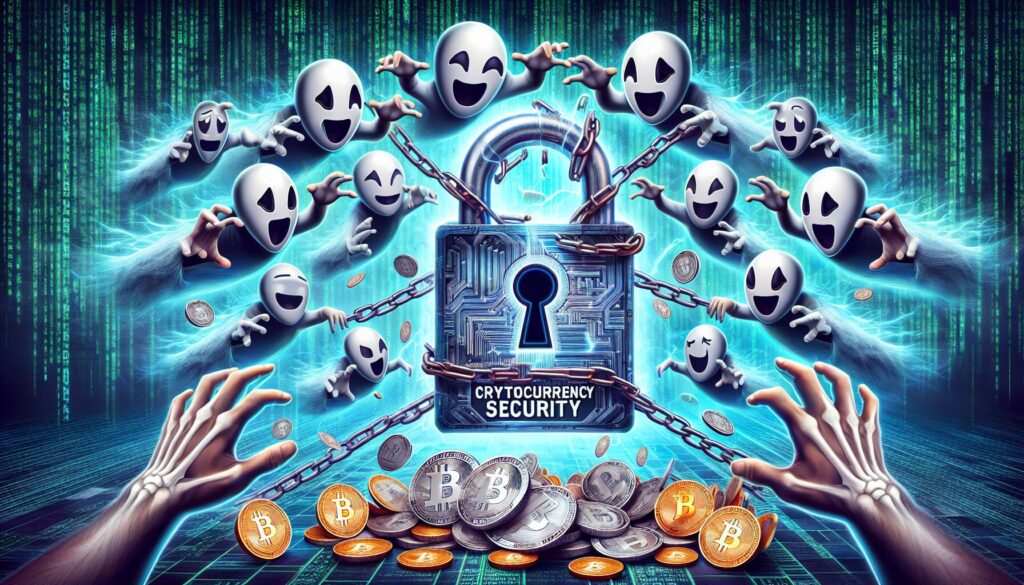In a startling revelation from a recent report by crypto intelligence platform Merkle Science, it has been found that over 0 million was lost to memecoin rug pulls and scams in 2024 alone. This critical issue highlights a growing trend in the cryptocurrency landscape, where social engineering tactics have become a prevalent method for cybercriminals. These manipulative strategies often rely on impersonating celebrities or well-known tech figures to gain trust and access to personal data.
One of the most shocking incidents involved French football star Kylian Mbappe, whose account on X was hacked. Scammers utilized this access to promote a fraudulent memecoin, which astonishingly surged to a 0 million market cap before it was abruptly pulled, leaving many investors in the lurch. Similarly, music artist Wiz Khalifa became a target, with fraudsters promoting a fake WIZ token to his massive following of 35.7 million on X, creating a market cap of .4 million before it fell to zero.
“These scams aren’t just opportunistic—they’re highly coordinated operations that exploit trust at scale,”
stated Robert Whitaker, director of law enforcement affairs at Merkle Science. This insight sheds light on a stark reality for many who engage with cryptocurrencies today. Whitaker emphasized that hackers are evolving in their tactics, shifting focus from merely breaching wallets and exchanges to hijacking the credibility of public figures to influence markets instantly.
According to the same report, a staggering 75% of all reported attacks occurred on X, while 19% were noted on YouTube. Moreover, 44% of these social engineering scams led to rug pulls, which are sudden and often devastating losses for investors. Phishing attacks were equally prevalent, accounting for another 44% of reported scams.
This comprehensive examination by Merkle Science underscores the urgent need for vigilance among cryptocurrency users, particularly in an environment where trust can be so easily manipulated and exploited.

Memecoin Scams in 2024: Key Insights and Implications
The following are the crucial points from the recent report by Merkle Science regarding memecoin scams and their significant impacts on the crypto landscape:
- Financial Losses:
- Over 0 million was lost due to memecoin rug pulls and scams in 2024.
- Social Engineering Tactics:
- Scammers utilized impersonation and manipulation techniques, often targeting celebrities and well-known tech figures.
- Notable cases include:
- Kylian Mbappe’s compromised X account leading to a fraudulent memecoin with a temporary market cap of 0 million.
- Wiz Khalifa’s influence leveraged to promote a fake WIZ token, which peaked at .4 million before collapsing.
- Coordinated Attacks:
- These scams are portrayed as highly organized operations that target trust across vast networks.
- Involvement of market manipulation in real-time through hijacked celebrity credibility.
- Platform Vulnerability:
- X was the primary platform for these scams, accounting for 75% of all reported attacks.
- YouTube followed with 19% of the scams reported.
- Nature of Attacks:
- 44% of the social engineering scams resulted in rug pulls, while phishing attacks also constituted 44% of all scams.
“Hackers are no longer just breaching wallets or exchanges; they’re hijacking the credibility of celebrities and industry leaders to manipulate markets in real time.” – Robert Whitaker, Merkle Science
Understanding these key points can help readers become more vigilant about potential scams, especially as they navigate investments in cryptocurrency and engage on social media platforms. Awareness can lead to more informed decisions and protection of personal assets from fraud.
2024’s Memecoin Scams: A Deeper Look into the Surge of Digital Deception
The cryptocurrency landscape in 2024 has become increasingly perilous, with over 0 million lost due to memecoin rug pulls and scams, as highlighted by a recent report from Merkle Science. This staggering figure not only underscores the market’s vulnerabilities but also illuminates the sophisticated tactics employed by cybercriminals, particularly those leveraging social engineering strategies. In contrast to previous years where scams might have been simple phishing attempts, today’s operations are alarmingly coordinated and highly strategic.
Competitive Advantages
One of the most significant advantages that these scams have is their ability to manipulate public trust by impersonating well-known personalities. The targeting of figures like Kylian Mbappe and Wiz Khalifa—a tactic that has proven remarkably effective—shows how fraudsters can draw upon the influence of celebrities to boost the visibility and perceived legitimacy of fraudulent tokens. With 75% of attacks taking place on platforms like X, this reliance on social credibility almost guarantees a swift influx of unsuspecting investors eager to jump on the latest trend without due diligence.
Competitive Disadvantages
However, those engaging in these scams face increasing scrutiny from law enforcement and regulatory bodies. Merkle Science’s findings spotlight a growing awareness among investors and the industry regarding these deceptive practices, potentially acting as a deterrent for future operations. Additionally, as more high-profile incidents come to light, trust in memecoins may suffer, leading to a decline in overall market enthusiasm. Platforms like YouTube are also beginning to implement stricter regulations to combat these emerging threats, ultimately making it harder for scammers to find new victims.
Who Benefits and Who Faces Challenges?
The primary beneficiaries of this nefarious activity are, unsurprisingly, the scammers themselves—individuals or groups who capitalize on the blind trust of millions. Unfortunately, this trend creates significant problems for both investors and legitimate projects within the cryptocurrency realm. Investors, already navigating a volatile market, must contend with the constant threat of falling victim to such scams. Meanwhile, reputable coin developers and platforms face the uphill battle of rebuilding trust in an environment increasingly marred by deception.
In essence, the landscape of memecoins in 2024 is fraught with peril, as the confluence of coordinated scams and the exploitation of social media creates a perfect storm for unsuspecting victims, highlighting the urgent need for greater awareness and robust security measures within the crypto space.

















